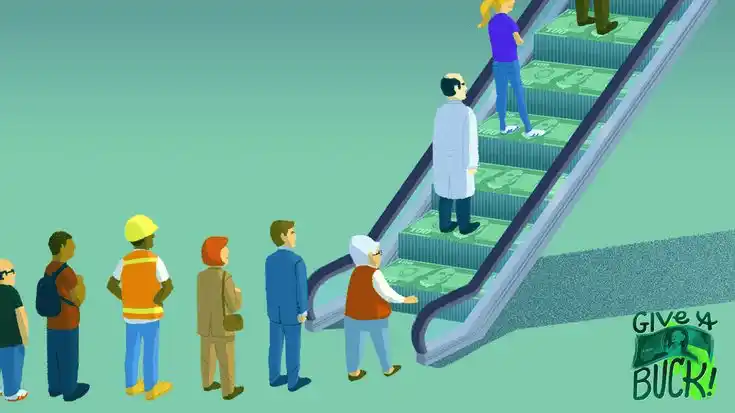The Promise and Pitfalls of Universal Basic Income

Universal Basic Income (UBI) is increasingly discussed as a possible solution to poverty and economic inequality. The idea is simple: the government provides a fixed amount of money to every individual, regardless of employment status, wealth, or income level. Proponents argue that UBI ensures basic financial security, while critics question its sustainability, impact on workforce participation, and overall effectiveness.
Can UBI truly eradicate poverty, or does it introduce new economic and social challenges? This article examines the potential benefits and drawbacks of UBI, its feasibility, and its real-world implications.
What is Universal Basic Income?
Universal Basic Income is a proposed economic policy where the government provides all citizens with a regular, unconditional cash payment. Unlike traditional welfare programs, UBI does not require recipients to meet specific eligibility criteria, such as unemployment or low income. It is designed to provide financial security and reduce economic inequality by ensuring that every individual has a minimum level of income.
There are different models of UBI, including:
- Full UBI: A sufficient amount of money to cover all basic needs (housing, food, healthcare).
- Partial UBI: A supplementary amount that provides a financial cushion but does not replace wages entirely.
- Targeted UBI: Universal payments adjusted based on economic status or region.
The goal of UBI is to provide economic stability and empower individuals to make life choices without financial desperation. However, the question remains—can it truly eliminate poverty
Can UBI Reduce Poverty?
Poverty is a multifaceted issue, driven by factors such as unemployment, lack of access to education and healthcare, and systemic inequality. UBI aims to tackle these challenges by ensuring everyone has a minimum income, thereby reducing financial hardship and promoting economic mobility.
Potential Benefits of UBI in Poverty Reduction
✔ Financial Stability: UBI provides a reliable income floor, preventing individuals from falling into extreme poverty. This could reduce homelessness and food insecurity, ensuring that basic needs are met.
✔ Education & Skill Development: With a guaranteed income, children in low-income families could focus on education rather than working to support their household. Adults may also have the freedom to pursue skill development, retraining, or higher education.
✔ Improved Health Outcomes: Financial insecurity is linked to poor physical and mental health. UBI could allow individuals to afford healthcare services, reducing stress-related illnesses and improving overall well-being.
✔ Encouraging Entrepreneurship: A steady income may give individuals the confidence to start businesses or take creative risks, fostering innovation and economic growth.
✔ Reducing the Poverty Trap: Many welfare programs discourage recipients from seeking employment due to benefit reductions as income increases. UBI eliminates this issue by providing consistent financial support regardless of work status.
These potential advantages suggest that UBI could be an effective poverty reduction tool. However, eradicating poverty is not solely about income; it also requires addressing systemic issues such as job availability, wealth distribution, and social services.
Challenges & Economic Feasibility
Despite its appeal, UBI faces significant challenges that raise doubts about its practicality.
1. Cost & Funding Issues
One of the most significant concerns is the financial burden of implementing UBI. Providing every citizen with a basic income would require massive government expenditures.
- In the UK, estimates suggest that a full-scale UBI program could cost between £60 to £400 billion annually.
- In the US, a universal monthly payment of $1,000 per adult would cost over $3 trillion per year, nearly matching the federal budget.
To fund UBI, governments would need to increase taxes, cut existing welfare programs, or reallocate public spending. Some argue that higher taxes could slow economic growth and reduce private investment, potentially offsetting UBI’s benefits.
2. Workforce Participation & Productivity Concerns
Critics argue that providing a guaranteed income might discourage people from working, leading to labour shortages and a declining workforce participation rate. While some studies suggest that most individuals would still seek employment, there is concern that lower-income, entry-level jobs could become harder to fill.
Additionally, a large-scale shift away from traditional employment could disrupt industries that rely on lower-wage labour, potentially increasing costs for goods and services.
3. Inflation Risks
A sudden increase in consumer purchasing power could drive up demand for housing, goods, and services, leading to inflation. If prices rise faster than the UBI payments, the program’s effectiveness in reducing poverty would be diminished.
4. One-Size-Fits-All Issue
UBI provides equal payments to all individuals, but the cost of living varies significantly between regions. A fixed UBI amount might be insufficient in high-cost areas while being excessive in lower-cost regions. Some argue that targeted assistance would be more efficient than universal payments.
UBI vs. Targeted Welfare Programs
While UBI aims to simplify social assistance, critics argue that targeted welfare programs—such as food subsidies, housing assistance, and job training—are more effective in addressing specific needs. Instead of replacing existing welfare systems, a hybrid approach that includes UBI alongside other programs might be more practical.
Advantages of a Targeted Approach:
- Directs resources to those most in need.
- Addresses specific economic and social challenges (e.g., housing crises, healthcare access).
- Less risk of unnecessary government spending on individuals who do not need financial assistance.
By integrating UBI with other poverty-reduction measures, governments could create a more balanced and sustainable strategy.
Global UBI Experiments & Lessons Learned
Several countries have experimented with UBI-like programs, providing insight into its real-world effects:
🔹 Finland (2017-2018): A two-year trial provided 2,000 unemployed citizens with €560 per month. While recipients reported higher well-being, employment rates remained largely unchanged.
🔹 Kenya: A non-governmental organization (NGO) launched a long-term UBI trial, showing positive impacts on financial security and entrepreneurship.
🔹 Alaska Permanent Fund: Since 1982, Alaskan residents have received annual oil revenue dividends. While this model is not a full UBI, it demonstrates the potential benefits of universal cash transfers.
Despite promising results, no country has implemented a nationwide UBI due to economic constraints and feasibility concerns.
Final Thoughts
Universal Basic Income is a bold and innovative policy that could provide financial security and reduce income inequality. However, its effectiveness in eradicating poverty depends on various factors, including funding mechanisms, economic conditions, and integration with existing social programs.
Instead of replacing welfare systems, a hybrid approach—combining UBI with job creation, education access, and healthcare initiatives—may offer the most sustainable solution.
The debate over UBI continues. Will it be the key to ending poverty, or is it an expensive experiment with uncertain outcomes? Only time and further trials will tell.
Would UBI work in your country?
